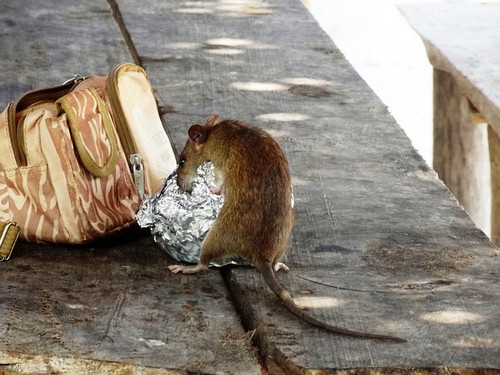What diseases are carried by rodent pests?
Pest Defence want to inform you about the diseases carried by rodent pests. This article will explore all types of bacteria and viruses carried by rats and mice: the common, familiar and treacherous. The diseases connected to rodents and the effects of vermin living in our homes will also be discussed.
Rodent dangers
Rodents are typically called the ‘vehicle’ for disease, and quite rightly so. They carry lethal viruses and parasites that spread through bodily fluids and excretion, such as urine, faeces, blood, saliva and body hair. These sneaky rodents can be found everywhere, even in your home, on boats, planes and trains. Furthermore, it’s not unheard of for rodents to breed in places where food and water are supplied, and as you can imagine this infects large areas nearby.
Diseases and bacteria
If you have rodents such as rats or mice in your home, you need to make sure they’re exterminated, fast. These pests can carry all sorts of horrible diseases, while some are treatable, others can be fatal.
Arenaviruses: a virus causing haemorrhages and fevers. There is no specific treatment for this illness and it’s caused by touching rat and mice contaminated objects.
Bartonellosis: caused by ticks and fleas living on the rodent. If you’re bitten by these insects, symptoms can include inflammation of the heart and eye disease.
Capillariasis: rodents host roundworm and this illness is caused by ingesting food or water contaminated with capillarid eggs. When the eggs hatch they bore holes in the intestines and this is usually the cause of death. Warning signs include liver failure and inflammation.
Echinococcosis: causes liver infections, fevers, rashes and anaphylactic shock; this is caused by ingesting food containing the parasite’s larva.
Hantavirus: a virus caused by mice, spread by inhaling contaminated dust or touching their excrement. Symptoms that may occur are, flu, kidney failure and respiratory problems.
Hemorrhagic: is another virus spread mainly by inhaling contaminated dust and although rare, it can be passed from person to person, through simple contact. Symptoms usually occur one to two weeks after subjection to breathing the dust. Symptoms develop quickly and include headaches, sickness, fevers and abdominal pains; more severe potential effects are acute shock and fluid buildup.
Leptospirosis to Weil’s disease: a bacteria causing violent flu-like symptoms. One can become infected by touching any rat or mice contaminated objects. The bacteria resides inside the rodent’s kidneys and therefore passed through when they urinate. Those that have a higher risk of contracting leptospirosis are, farmers, vets, sewer workers and mine workers. Although harmful, this can be treated with a series of antibiotics. If this is not treated, Weil’s disease develops and can cause organ failure.
Lyme disease: probably the most common virus that can be contracted. This causes skin lesions, fever, headaches and joint pain. This disease is caused by ticks that live on rats and mice, they’re transported by these rodents and transferred by the insect’s bite. Lyme disease can cause various stages of illness, the first stage is usually noticed around day 7 after the bite. One will find themselves with flu-like symptoms such as aches, chills, fatigue and fever. The second stage can cause problems with the brain, interference with the nervous system and even affected or loss of vision.
Plague: very rare nowadays but has caused well-known epidemics throughout history. The bacteria, which affects both humans and other animals, causes hearts attacks, breathing difficulties and if not treated quickly, death.
Rodent-borne diseases: are caught from bites, scratches and simple contact with dead rats. Symptoms include, fever, kidney failure and, in some serious cases, breathing problems.
Salmonella: causes intestinal disorders. This is commonly linked with food poisoning but is also associated with rats. It usually takes 12 to 72 hours to develop irritation and can remain in the system up to a week! This can be contracted due to poor hand hygiene, or if a open wound has come into contact with a contaminated surface.
Tapeworms: are transferred through infected food or water being ingested. Tapeworms can cause abdominal pain, diarrhoea, restless sleep and more. They pose greater health problems to children.
Call us today
Pest Defence wish to inform you on the harsh reality of rodents living in homes. As much as they can cause unwanted disruption, they can also be life threatening. It’s in your interests to call an extermination team to ensure they’re removed safely, efficiently and humanely. If you’re aware of rats living in your home, ensure you bleach all surfaces before using them, for your own health and safety. Please call Pest Defence today and we can help remove the issue effectively and immediately.

